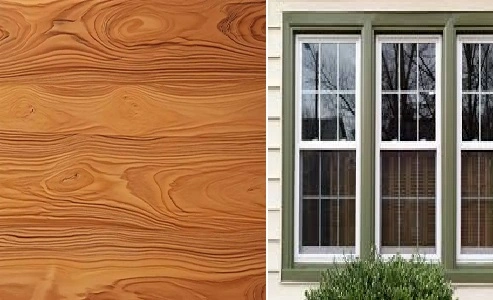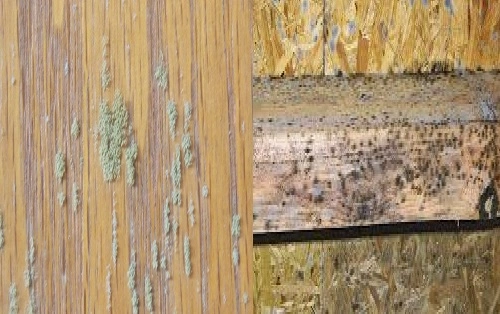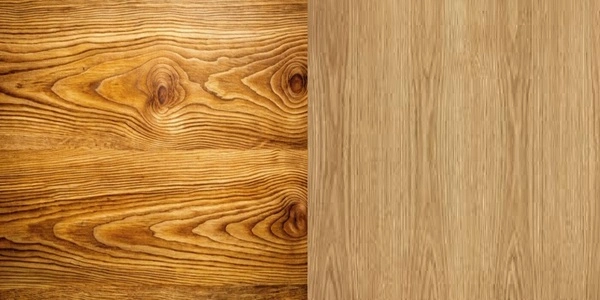When it comes to selecting new windows for your home, the choice often comes down to wood windows and vinyl windows. Both materials are popular in the USA for their distinct advantages and unique qualities. Whether you’re looking to enhance your home’s aesthetics, improve energy efficiency, or add value to your property, understanding the pros and cons of wood and vinyl windows will help you make an informed decision.
In this article, we’ll compare wood vs. vinyl windows based on appearance, durability, energy efficiency, maintenance, cost, and resale value, so you can decide which option best suits your needs.
What are Wood Windows?
Wood windows have been a staple in homes for centuries. They are made from natural wood materials like pine, mahogany, or oak, and are often chosen for their timeless beauty and craftsmanship.
Advantages of Wood Windows
1. Aesthetic Appeal: Wood windows offer a classic, elegant look that enhances the charm and warmth of your home. They can be customized with various stains, paints, and finishes to complement traditional, historic, or high-end homes.
2. Customizability: Wood can be easily painted or stained to match your home’s interior and exterior. If you change your décor or paint color, wood windows can be refinished to match.
3. Superior Insulation: Wood is a natural insulator, which means it provides excellent thermal insulation. This helps keep your home warm in the winter and cool in the summer, reducing energy costs.
4. Adds Value to Your Home: Wood windows are a premium feature that adds value and curb appeal to your home, making them attractive to buyers, especially in high-end or historic neighborhoods.
5. Longevity with Proper Care: With proper maintenance, wood windows can last 30-50 years or longer, making them a durable and long-term investment.
Disadvantages of Wood Windows
1. High Maintenance: Wood windows require regular upkeep, including painting, staining, and sealing, to prevent moisture damage, rot, and warping.
2. Vulnerability to Weather and Pests: If not properly sealed, wood can absorb moisture, leading to swelling, rotting, or mold growth. Wood is also susceptible to termites and other pests.
3. Higher Cost: Wood windows are significantly more expensive than vinyl, both in material cost and installation.
4. Prone to Expansion and Contraction: Wood expands and contracts with temperature and humidity changes, which can affect the window’s performance over time.
What are Vinyl Windows?
Vinyl windows are made from polyvinyl chloride (PVC), a durable, low-maintenance synthetic material. They have become increasingly popular in modern homes due to their affordability and energy efficiency.
Advantages of Vinyl Windows
1. Low Maintenance: Vinyl windows are virtually maintenance-free. They don’t require painting, staining, or sealing and can be cleaned with just soap and water.
2. Affordable: Vinyl windows are more budget-friendly than wood windows, making them an attractive option for cost-conscious homeowners.
3. Energy Efficiency: Vinyl windows often come with insulated frames and energy-efficient glass, helping to reduce heat transfer and lower energy bills. Many are ENERGY STAR® certified.
4. Durability: Vinyl is resistant to moisture, rot, warping, and pests. It performs well in all climates and has a lifespan of 20-40 years with little upkeep.
5. No Painting Required: Vinyl windows come in a variety of colors and finishes, which are factory-applied and will not fade, peel, or chip over time.
Disadvantages of Vinyl Windows
1. Limited Aesthetic Appeal: While vinyl windows come in various colors, they cannot replicate the natural warmth and beauty of wood. They may look out of place in historic or high-end homes.
2. Less Customization: Vinyl windows cannot be painted or stained, so you’re limited to the manufacturer’s color options.
3. Lower Resale Value: While vinyl windows are cost-effective, they don’t add as much value to a home as wood windows. In high-end markets, vinyl windows may not appeal to buyers seeking luxury finishes.
4. Not as Strong as Wood: Vinyl windows are durable, but they lack the structural strength of wood. In extreme conditions, the frames may warp or sag over time.
Wood vs. Vinyl Windows: Key Comparisons
| Feature | Wood Windows | Vinyl Windows |
|---|---|---|
| Appearance | Natural, elegant, customizable | Clean, modern, limited customization |
| Maintenance | Requires regular painting/staining | Low maintenance; easy to clean |
| Durability | Long-lasting with care | Durable but less sturdy than wood |
| Energy Efficiency | Excellent insulation | Highly energy-efficient with insulation |
| Cost | Expensive | Budget-friendly |
| Lifespan | 30-50+ years with maintenance | 20-40 years with minimal care |
| Resale Value | High; premium feature | Moderate; less appeal in high-end homes |
| Resistance to Elements | Prone to moisture and pests | Resistant to rot, pests, and weather |
Which Windows Should You Choose?
- Choose Wood Windows If:
- You want a premium, elegant aesthetic for a traditional, luxury, or historic home.
- Customization and refinishing options are important to match changing styles.
- You’re prepared to invest time and money in maintenance.
- Resale value and long-term durability are top priorities.
- Choose Vinyl Windows If:
- You’re looking for a budget-friendly option that is durable and low maintenance.
- Energy efficiency and easy cleaning are essential.
- You live in areas with extreme weather where resistance to moisture and warping is a must.
- A modern or functional aesthetic suits your home style.
Final Thoughts
Both wood windows and vinyl windows offer unique benefits, and the right choice depends on your priorities. Wood windows are perfect for homeowners who value natural beauty, long-term value, and a timeless aesthetic, but they come with higher costs and maintenance requirements. On the other hand, vinyl windows are an affordable, low-maintenance, and energy-efficient option, making them ideal for modern and budget-conscious homes.
By considering your budget, home style, and willingness to maintain the windows, you can choose the material that best fits your needs, ensuring a balance of functionality, beauty, and value for years to come.


